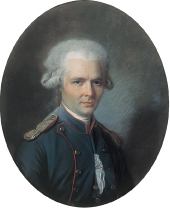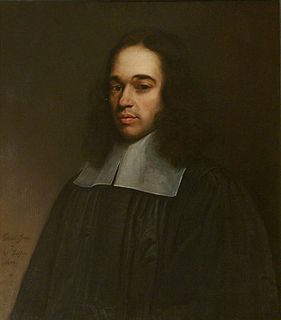A Quote by Pierre Choderlos de Laclos
Humanity is not perfect in any fashion; no more in the case of evil than in that of good. The criminal has his virtues, just as the honest man has his weaknesses.
Related Quotes
Two great virtues . . . give a man power with the heavens - integrity and purity of character. Let a man possess these, let his heart be true and unflinching, let his life be pure, and, if we add to these humility, he is protected against a multitude of weaknesses and can resist a host of temptations. We all have our weaknesses; God has permitted them that we might be taught humility in ourselves and charity towards others.
At the risk of repetition let me say again that my plea is not for immunity to, but for the most unsparing exposure of, the politician who betrays his trust, of the big business man who makes or spends his fortune in illegitimate or corrupt ways. There should be a resolute effort to hunt every such man out of the position he has disgraced. Expose the crime, and hunt down the criminal; but remember that even in the case of crime, if it is attacked in sensational, lurid, and untruthful fashion, the attack may do more damage to the public mind than the crime itself.
One of the commonest causes of failure in Christian life is found in the attempt to follow some good man whom we greatly admire. No man and no woman, no matter how good, can be safely followed. If we follow any man or woman, we are bound to go astray. There has been but one absolutely perfect Man on this earth-the Man Christ Jesus. If we try to follow any other man we are surer to imitate his faults than his excellencies. Look to Jesus and Jesus only as your Guide.
How much reverence has a noble man for his enemies!--and such reverence is a bridge to love.--For he desires his enemy for himself, as his mark of distinction; he can endure no other enemy than one in whom there is nothing to despise and very much to honor! In contrast to this, picture "the enemy" as the man of ressentiment conceives him--and here precisely is his deed, his creation: he has conceived "the evil enemy," "the Evil One," and this in fact is his basic concept, from which he then evolves, as an afterthought and pendant, a "good one"--himself!
In the first place, the government ought not to be invested with power to control the affections, any more than the consciences of citizens. A man has at least as good a right to choose his wife, as he has to choose his religion. His taste may not suit his neighbors; but so long as his deportment is correct, they have no right to interfere with his concerns.
Wrongs are often forgiven, but contempt never is. Our pride remembers it forever. It implies a discovery of weakness, which we are more careful to conceal than a crime. Many a man will confess his crimes to a friend; but I never knew a man that would tell his silly weaknesses to his most intimate one.
The science of psychology has been far more successful on the negative than on the positive side... It has revealed to us much about man's shortcomings, his illnesses, his sins, but little about his potentialities, his virtues, his achievable aspirations or his psychological health... We must find out what psychology might be if it could free itself from the stultifying effects of limited, pessimistic and stingy preoccupations with human nature.






































